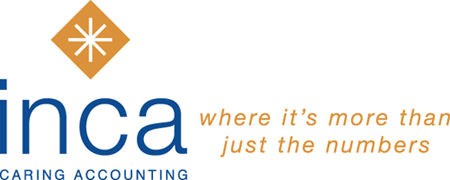Time moves quickly when you’re running your own business. We don’t want to wish the year away, but before you know it, it will be time to file your 2018/19 tax return.
It’s probably not your favourite job, but getting everything in order so you can complete and file your return well ahead of the deadline will ensure you avoid any last-minute stress.
In our experience, there are a number of areas which can often catch people out, so as the new tax season draws nearer, here are our top tips to keep in mind as you get ready:

1. Check if you need to file a tax return
Let’s start at the beginning; do you need to file a Self Assessment tax return? Over 11.5 million people were required to file returns for the tax year 2017-18, but changes to legislation and to the personal circumstances of individual taxpayers mean this number grows each year.
Remember, it’s your responsibility to know whether you need to file a return or not, so don’t make the mistake of thinking HMRC will contact you. The deadline for filing an online tax return for the tax year 2018-19 is midnight on 31st January 2020. If you need to file a return and miss this deadline, you’ll face a penalty for late filing, and you’ll accrue interest charges on any unpaid tax.
You can find more information about who needs to file a tax return in our blog Do I Need to File a Tax Return? from earlier this year, and there’s also a handy tool on the HMRC website https://www.gov.uk/check-if-you-need-tax-return.
2. Declare dividend earnings over £2k
The amount you’re able to receive tax-free in dividends from shares you own in a company reduced from £5k to £2k with effect from the start of the 2018-19 tax year. If you earned more than £2k in dividends across all sources during this tax period, you need to file a return and declare your dividend earnings.
3. Declare Child Benefit if you or your partner’s income is more than £50k
If you receive Child Benefit, and your income – or that of your partner (even if you’re not married) is more than £50k, the higher earner in the relationship must file a return and declare the benefit. You’ll have to pay the High-Income Child Benefit Charge – and anyone earning over £60k will lose the benefit altogether.
Clients earning between £50k – £60k often ask us if it’s better simply not to claim Child Benefit. Even though you may eventually have to pay back some of the benefit, our advice is always to claim – especially if irregular dividend payments mean your salary fluctuates year on year.
4. Declare profits on any shares you’ve sold
If you’ve sold stocks or shares during the tax period 2018-19, you’ll need to declare any gains you’ve made.
Perhaps you inherited an investment portfolio from a relative; while the shares will have been valued and Inheritance Tax will have been paid during the probate process, any subsequent activity you initiate – for example cashing shares in or transferring shares into an ISA will be subject to Capital Gains Tax and must be reported.
It’s an area that can sometimes catch people out. Although sales might be intermittent and result in different levels of profit, gains can accumulate over a period. You’ll only have to pay CGT on any gains above your tax-free Annual Exempt Amount – currently £12k.
5. If you own a second property with your partner, make sure your tax position is as efficient as it can be
Recent changes to the way second homes are taxed – particularly in relation to mortgage relief restrictions on rental properties – mean more and more couples are looking at how property ownership is split between them.
Because income – and therefore rental profit – is proportionate to ownership, having a split in favour of the lower earner is an effective way to mitigate a couple’s overall tax liability.
Couples and civil partners can gift assets to each other, including property. With the assistance of a good conveyancing solicitor, and subject to how you own the property (ideally as tenants in common), it’s possible to adjust the ownership split from the 50/50 default position to as much as 99/1.
Here at Inca, we’re currently helping many of our clients modify the ownership split on their properties to ensure their tax liability is minimised. If you have a property you rent out; you won’t want to delay making sure your tax position is as efficient as it can be – especially if you and your partner fall into different tax bands.
For more information on this topic, take a look at our blog Do You Own a Second Property? Upcoming Changes to Tax Relief Mean You Need to Evaluate Your Position Now!
6. Don’t get caught out by payments on account
If you’re unaware of how the payments on account system works, you could be in for an unwelcome surprise when you receive your tax bill in the New Year.
If you owe more than £1k tax on your 2018-19 income, you’ll be required to make two additional contributions towards the tax year 2019-20. Each payment will be equivalent to half your tax bill for 2018-19, with the first being due on 31st January, and the second on 31st July.
Newly self-employed business owners are especially vulnerable to being caught out by payments on account – and the scheme can also trip up shareholders who take an increased dividend payment that tips their tax liability over the £1k threshold.
It’s a good reason for preparing your tax return as soon after the end of the tax year as possible. This way, you have plenty of time to make plans for payments.
For more information, read our blog Payments on Account – How to Avoid Nasty Surprises!
7. If you want to pay tax through your tax code, don’t miss the 30th December filing deadline
If you pay tax through PAYE – because you’re an employee or get a company pension, you can pay your Self Assessment bill through your PAYE tax code as long as you owe less than £3,000. To do so though, you’ll have to make sure you file a hard copy tax return by 31 October or an online tax return by 30 December
Need Help Preparing Your 2018-19 Tax Return?
The earlier you complete and file your tax return, the sooner you’ll be able to stop worrying about it and get on with running your business. But work pressure can mean your tax return gets left to the last minute – adding to stress levels and leaving little time to anticipate tax bills.
At Inca, we work exclusively with owners of micro and small businesses like yours, and we can take responsibility for ensuring your tax return is completed accurately and in plenty of time.
For a hands-free tax return service or help and advice regarding any aspect of your tax affairs, get in touch with us now. For an initial chat. Call us on 01235 868888 or email us at [email protected].




